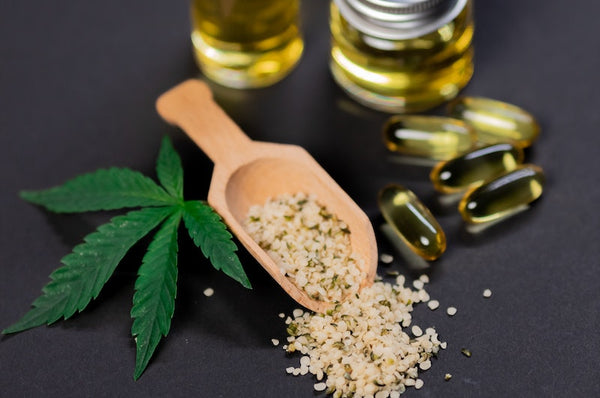
Table of Contents
Looking where to buy the best at home drug test? Look no further. Get yours on Amazon today!
Common Causes of Teenage Drug Use
Adolescents try drugs or continue to use them because they might want: To fit in Many teenagers use drugs because other people use them (or at least they think they use them). On top of that, they may be afraid of not being accepted in a social circle that includes drug users. To feel good Inducing feelings of pleasure with drugs interacts with the neurochemistry of the brain. The strength of this euphoria varies depending on the substance and how it is administered. To feel better Depression, social anxiety, stress-related ailments, and physical pain affect some teens. It's possible that using drugs is an attempt to alleviate these distressing feelings. For those recovering from an addiction, stress has a crucial role in initiating and maintaining drug use, as well as returning to drug use (relapsing). To perform better We live in a very competitive society that pressures many teens to excel academically and others athletically. Some teenagers may even turn to illicit or prescribed stimulants in hopes of enhancing or improving their performance. To try new things Think back for one second to when you were a teen - everything new seemed intriguing and you probably wanted to try it. Same with other adolescents. They are typically driven to seek out new experiences, especially those that they believe to be exciting or bold.10 Most Common Teenage Drugs
Understanding which substances are most typically misused by kids (and why) helps to get a better understanding of teen drug abuse. The NIDA, in partnership with the University of Michigan, conducts an extensive survey of high school students in the United States each year. In it, they combine the data to indicate which drugs teens use and what percentage of the teen population uses them. According to the Monitoring the Future (MTF) survey, the following are the ten most often used substances among teens and adolescents.1/10 Alcohol
 For many teens, alcohol has many appealing factors:
For many teens, alcohol has many appealing factors:
- It is widely available in homes.
- It is perceived as low risk due to the fact that is a legal substance.
- It is associated with having fun and partying.
2/10 Marijuana
 Most often people smoke marijuana but can also ingest them via edible products. Once the drug enters the body, the chemical delta-9-tetrahydrocannabinol (THC) binds to parts of the brain. This binding triggers the brain to release a neurotransmitter called dopamine. Dopamine is responsible for giving the feeling of pleasure and reward.
Marijuana's popularity originates in part from the belief that it is not harmful. Many teens believe that marijuana has no addictive properties or that it poses no health hazards. According to MTF, less than 32% of 12th graders believed that frequent marijuana usage could be dangerous.
Most often people smoke marijuana but can also ingest them via edible products. Once the drug enters the body, the chemical delta-9-tetrahydrocannabinol (THC) binds to parts of the brain. This binding triggers the brain to release a neurotransmitter called dopamine. Dopamine is responsible for giving the feeling of pleasure and reward.
Marijuana's popularity originates in part from the belief that it is not harmful. Many teens believe that marijuana has no addictive properties or that it poses no health hazards. According to MTF, less than 32% of 12th graders believed that frequent marijuana usage could be dangerous.
3/10 Nicotine
 Despite the fact that cigarette smoking has been declining as risk perceptions have grown, nicotine use remains a source of concern for teens. The increased popularity of e-cigarettes among younger teenagers is one factor. Many teens and adolescents who use these products are ignorant of what is e-cigarettes have in them. This is mainly due to a lack of regulation and disinformation from manufacturers and peers.
Nicotine products are still very popular because of their low cost and ease of use. While the dangers of cigarettes are well-known, e-cigarettes are promoted as a “safer” option, and as a result, teens may be more likely to use them.
Despite the fact that cigarette smoking has been declining as risk perceptions have grown, nicotine use remains a source of concern for teens. The increased popularity of e-cigarettes among younger teenagers is one factor. Many teens and adolescents who use these products are ignorant of what is e-cigarettes have in them. This is mainly due to a lack of regulation and disinformation from manufacturers and peers.
Nicotine products are still very popular because of their low cost and ease of use. While the dangers of cigarettes are well-known, e-cigarettes are promoted as a “safer” option, and as a result, teens may be more likely to use them.
4/10 Adderall
 Adderall is a pharmaceutical drug that contains two substances: amphetamine and dextroamphetamine, and is used to treat attention deficit hyperactivity disorder (ADHD). Both medicines fundamentally speed up the body's functioning and boost attention while also lowering hyperactivity.
Despite their differences, they both increase dopamine and another neurotransmitter called norepinephrine, in the brain. Adderall and other stimulant drugs can be safe and effective when taken as directed. But, they can be hazardous and addicting if taken in ways other than prescribed.
Risks and side effects of abusing Adderall include:
Adderall is a pharmaceutical drug that contains two substances: amphetamine and dextroamphetamine, and is used to treat attention deficit hyperactivity disorder (ADHD). Both medicines fundamentally speed up the body's functioning and boost attention while also lowering hyperactivity.
Despite their differences, they both increase dopamine and another neurotransmitter called norepinephrine, in the brain. Adderall and other stimulant drugs can be safe and effective when taken as directed. But, they can be hazardous and addicting if taken in ways other than prescribed.
Risks and side effects of abusing Adderall include:
- Elevated blood pressure and body temperature.
- Irregular heartbeat.
- Paranoia and irritability.
- Seizures.
- Strokes.
5/10 Oxycontin or other opioids
 OxyContin is a potent and highly addictive brand name for oxycodone, a pain-relieving prescription opioid.
Teens abuse the tablet forms of these medicines by consuming them orally, crushing them, and snorting or injecting them. Because of their legal status, prescription medications are also thought to be less dangerous than illicit substances like heroin. But it doesn’t take away the fact that it stays dangerous if abused.
In reality, these medications carry a number of major hazards. According to the CDC, people who abuse or are dependent on:
OxyContin is a potent and highly addictive brand name for oxycodone, a pain-relieving prescription opioid.
Teens abuse the tablet forms of these medicines by consuming them orally, crushing them, and snorting or injecting them. Because of their legal status, prescription medications are also thought to be less dangerous than illicit substances like heroin. But it doesn’t take away the fact that it stays dangerous if abused.
In reality, these medications carry a number of major hazards. According to the CDC, people who abuse or are dependent on:
- prescription opioid painkillers are 40 times more likely to abuse or be dependent on heroin.
- cocaine are 15 times more likely to abuse or be dependent on heroin.
- marijuana are 3 times more likely to abuse or be dependent on heroin.
- alcohol are 2 times more likely to abuse or be dependent on heroin.
6/10 Tranquilizers
 Anxiety, acute stress reactions, and panic episodes are treated with prescription tranquilizers (benzodiazepines). They also help people with mental illnesses like bipolar disorder. If someone abuses them for a long time, he or she may develop a dependency, addiction, and a higher risk of mental illness. If you watched the Queen’s Gambit on Netflix, well remember the green pill? That green pill even made a child addicted to tranquilizers - it can happen to anyone.
The following are some physical indications of sedative and tranquilizer usage and misuse:
Anxiety, acute stress reactions, and panic episodes are treated with prescription tranquilizers (benzodiazepines). They also help people with mental illnesses like bipolar disorder. If someone abuses them for a long time, he or she may develop a dependency, addiction, and a higher risk of mental illness. If you watched the Queen’s Gambit on Netflix, well remember the green pill? That green pill even made a child addicted to tranquilizers - it can happen to anyone.
The following are some physical indications of sedative and tranquilizer usage and misuse:
- Disorientation
- Depression
- Slurred speech
- Aggressive behavior
- Suicidal thoughts and/or behaviors
- Impaired memory, judgment, or coordination
- Dilated pupils
- Dizziness
7/10 Spice or K2
 K2/Spice is a blend of plant material sprayed with synthetic psychoactive compounds. It is a synthetic form of tetrahydrocannabinol (THC), the psychoactive element in marijuana. It usually resembles potpourri and is labeled "not for human consumption."
Purchasing via the internet is risky because the sources and chemical quantities are unknown. It's nearly impossible for the consumer to know what's in synthetic cannabis products and how strong they are. Taking spice can end up giving you paranoia, anxiety, panic attacks, hallucinations, and giddiness.
K2/Spice is a blend of plant material sprayed with synthetic psychoactive compounds. It is a synthetic form of tetrahydrocannabinol (THC), the psychoactive element in marijuana. It usually resembles potpourri and is labeled "not for human consumption."
Purchasing via the internet is risky because the sources and chemical quantities are unknown. It's nearly impossible for the consumer to know what's in synthetic cannabis products and how strong they are. Taking spice can end up giving you paranoia, anxiety, panic attacks, hallucinations, and giddiness.
8/10 Hallucinogens
 Hallucinogens are a class of medications that modify a person's perception of their environment as well as their own thoughts and feelings. Classic hallucinogens (such as LSD) and dissociative substances are the two most common types (such as PCP).
Hallucinations, or sensations and visuals that appear real but aren't, can be caused by both types of hallucinogens. These drugs can also make you feel disconnected from your body and environment.
Some hallucinogens interfere with the action of the brain chemical serotonin, which regulates:
Hallucinogens are a class of medications that modify a person's perception of their environment as well as their own thoughts and feelings. Classic hallucinogens (such as LSD) and dissociative substances are the two most common types (such as PCP).
Hallucinations, or sensations and visuals that appear real but aren't, can be caused by both types of hallucinogens. These drugs can also make you feel disconnected from your body and environment.
Some hallucinogens interfere with the action of the brain chemical serotonin, which regulates:
- mood
- sensory perception
- sleep
- hunger
- body temperature
- sexual behavior
- intestinal muscle control
9/10 Inhalants
 Inhalants are compounds that emit chemical vapors that teens inhale to cause a psychoactive (mind-altering) effect. Since inhalants are commonly found in domestic, industrial, and medical items, they include volatile solvents, aerosols, gases, and nitrites.
Inhalant addicts will consume any chemical that is available to them. Individual inhalant effects, on the other hand, vary. Some users may go to great lengths to get their preferred inhalant. For example, "Texas shoeshine," a shoe-shining spray containing the chemical toluene, is a local favorite in several parts of the country.
Inhalants are compounds that emit chemical vapors that teens inhale to cause a psychoactive (mind-altering) effect. Since inhalants are commonly found in domestic, industrial, and medical items, they include volatile solvents, aerosols, gases, and nitrites.
Inhalant addicts will consume any chemical that is available to them. Individual inhalant effects, on the other hand, vary. Some users may go to great lengths to get their preferred inhalant. For example, "Texas shoeshine," a shoe-shining spray containing the chemical toluene, is a local favorite in several parts of the country.
10/10 DXM (Dextromethorphan)
 Dextromethorphan (DXM) is a cough suppressant found in over 120 over-the-counter (OTC) cold medications. It’s either alone or in combination with other drugs such as analgesics (e.g., acetaminophen), antihistamines (e.g., chlorpheniramine), etc. Teens might use high doses of DXM to induce euphoria and visual and aural hallucinations.
Long-term DXM misuse has been linked to serious psychological dependence. Overdosing on DXM can be managed in the emergency room and does not usually result in serious medical complications or death. Ingestion of DXM in combination with other medicines is responsible for the majority of DXM-related deaths. DXM-related mortality can also result from a sensory impairment, which can lead to accidents.
It’s important to remember that if you suspect your child may be addicted to one of these substances, consult with your family doctor to properly address the situation and come up with a plan. Confronting and accusing your child may lead to them refusing to open up and further abusing substances and drugs.
Dextromethorphan (DXM) is a cough suppressant found in over 120 over-the-counter (OTC) cold medications. It’s either alone or in combination with other drugs such as analgesics (e.g., acetaminophen), antihistamines (e.g., chlorpheniramine), etc. Teens might use high doses of DXM to induce euphoria and visual and aural hallucinations.
Long-term DXM misuse has been linked to serious psychological dependence. Overdosing on DXM can be managed in the emergency room and does not usually result in serious medical complications or death. Ingestion of DXM in combination with other medicines is responsible for the majority of DXM-related deaths. DXM-related mortality can also result from a sensory impairment, which can lead to accidents.
It’s important to remember that if you suspect your child may be addicted to one of these substances, consult with your family doctor to properly address the situation and come up with a plan. Confronting and accusing your child may lead to them refusing to open up and further abusing substances and drugs.
Tips on Talking to Teens About Drug Use
“The opposite of addiction is connection.” - Johann HariHigh School Drug and Alcohol Counsellor Alethia Mackay, introduces the way she works with her students to overcome addiction to substances like alcohol, marijuana, cocaine, etc. Some tips she gives parents that will help them talk to their teens come from the example of how high schools in Iceland did it. These steps include:
- Teach children to live with positive abstinence qualities when it comes to drugs and alcohol.
- Spend more quantity time with your children rather than the occasional quality time (i.e., a monthly movie night or dinner won’t cut it).
- Speak with kids about their experiences and lives and be present the entire time. Let them know you care and are interested to hear their stories.
- Ask about their friends to find out who they’re choosing to hang out with.
- Share with them about the risk of drugs and alcohol.
- Keep kids occupied by encouraging after-school activities.
Testing teens for drugs
It’s easy to test at home, in privacy too. All you need is a urine sample and the option of either a 7-panel drug test that will check for:- Marijuana (THC)
- Cocaine (COC)
- Opioids (MOP)
- Amphetamine (AMP)
- Methamphetamine (MET)
- Benzodiazepines (BZO)
- Ecstasy (MDMA)
How to Prevent Teens From Using Drugs
If you suspect your teen is using drugs, it can be scary. Many parents become angry at their children for making the decision to use drugs as a teen but the best thing for you to do is try to remain calm and respond with love. It is also important for you to educate him or her about the dangers of drug abuse and addiction in addition to teaching them about substance abuse treatment and how important it is. You can find some good starting tips here. Also, you don't have to help your teen with drugs on your own. It can be difficult to help a teenager on your own. So having people who can support, not only you but also your teen, can be beneficial. Finally, seek the advice of a specialist. Treatment from a specialist, whether it's a family doctor or a behavioral health center that specializes in teen substance use and addiction recovery, is critical for your loved one's recovery. You can find other treatment referrals provided by the NIDA here.No More Youth on Drugs!
Every day more teens try illicit drugs. And these young adults account for a high proportion of those who suffer from a substance use problem in the United States. This could be due to the fact that they are going through adolescence and developing a new sense of self. However, this does not stop teens from falling into addiction. Giving teenagers the right understanding of how drugs influence their bodies will undoubtedly be a significant step towards a normal and healthier adolescence. Visit the NIDA website today for additional information on teens and drugs.
Resources:
- https://projectknow.com/parents-guide/newest-ways-to-abuse-drugs/
- https://nida.nih.gov/research-topics/trends-statistics/monitoring-future
- https://www.nih.gov/news-events/news-releases/sixty-percent-12th-graders-do-not-view-regular-marijuana-use-harmful
- https://www.cdc.gov/tobacco/data_statistics/fact_sheets/youth_data/tobacco_use/index.htm
- https://projectknow.com/adderall/
- https://www.hazeldenbettyford.org/addiction/types-of-addiction/adderall
- https://www.ncbi.nlm.nih.gov/pmc/articles/PMC5140739/
- https://projectknow.com/oxycodone/
- https://www.osha.gov/toluene
- https://www.dea.gov/sites/default/files/2020-06/DXM-2020.pdf
- https://www.youtube.com/watch?v=yjAKas1kuqs
- https://jamanetwork.com/journals/jamanetworkopen/fullarticle/2790603
- https://thrivingschools.kaiserpermanente.org/how-to-talk-to-teens-about-drugs-and-alcohol/
- https://nida.nih.gov/publications/principles-adolescent-substance-use-disorder-treatment-research-based-guide/introduction


15 comments
As a parent, I like to know my teen’s activities and always pay attention to their whereabouts. This really helps in keeping them away from drugs
Drug use is still prevalent among teens. I hope that parents can guide them well and the local governments and schools can set up good programs to help stop drug use.
Drugs can really destroy their future in every way. I’ve advised my kids on these and I hope they remember it by heart.
I am hoping my boys follow in my footsteps in their teenage years as I didn’t do any of this. We keep open lines of communication with them so hopefully that helps.
Every parent and authority figure needs to read this. Drug use can lead to some incredibly bad consequences, and teens can be very impetuous.